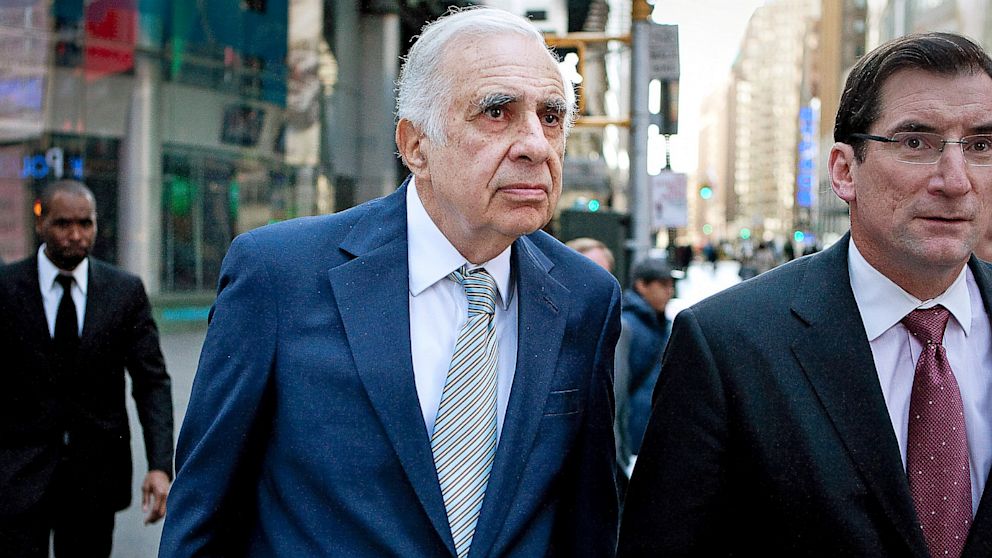
(Credit: Getty Images)
By: Chris Neill
“CONFLICTS OF INTEREST! OPTIONS BACKDATING SCANDAL! INVESTMENTS IN DIRECT COMPETITORS! DEPARTMENT OF JUSTICE INVESTIGATION! THESE ARE “WORLD-CLASS” DIRECTORS?”
Making gratuitous use of caps-lock, bold, underline, and exclamation marks, Carl Icahn’s latest claims against the eBay board of directors and management seem more at home on the cover of a grocery store checkout line tabloid than in an open letter to the stockholders of a multinational Internet corporation.
The open letters and press releases that make up Icahn’s public crusade against eBay have been flowing out non-stop since the first on Feb. 24. His ultimate goal in this crusade seems to be forcing eBay to spin off its payment processing subsidiary PayPal into an independent company. However, his letters have taken a much sharper tone, attacking the character and competence of the board and management. In his first letter, Icahn claims to have “discovered multiple lapses in corporate governance,” including “certain material conflicts of interest, which we believe could put the future of our company in peril.” Lest any reader fail to grasp the severity of the situation at hand, Icahn stresses that the “complete disregard for accountability at eBay is the most blatant we have ever seen.” Among the specific claims Icahn makes in this letter are accusations that two board members have conflicts of interest that put them in direct competition with eBay, one is “routinely funding competitors,” and at least two others have taken opportunities to reap personal profit ahead of any fiduciary duty to eBay shareholders. In another letter, Icahn claims that eBay CEO John Donahoe’s “incompetence” surrounding the sale of Skype to Microsoft cost shareholders more than $4 billion.
eBay has kept pace with Icahn’s letters, responding to individual claims through press releases of their own. In its first response, the company firmly stood behind its directors, calling its members “the most respected, accomplished and value-driven technology leaders in Silicon Valley,” while noting that the board as a whole “is scrupulous in its governance practices and fully transparent with regard to its directors’ other affiliations and businesses.” Furthermore, the release supports Donahoe, who is “widely respected for his turnaround of eBay and leadership of the company over the past six years.” The company has repeatedly asked Icahn to engage in more positive discussion surrounding the potential PayPal transaction without the mudslinging about its board and its management. However, Donahoe expects that the crusade will intensify until the company’s annual shareholder meeting in May and has instructed his employees: “Don’t pay attention to the noise. Stay focused, and don’t be distracted.”
Icahn has always been in the business of shaking up companies from within. Joe Nocera of the New York Times succinctly summarizes Icahn’s modus operandi: “he agitates.” Throughout his career, Icahn has “taken positions in companies, large and small, and proceeded to make himself a burr in the side of management.” Before he positioned himself as the shareholder activist he does today, he was once feared by boards everywhere as a ruthless corporate raider. He earned this reputation after a 1985 hostile takeover of Trans World Airlines. The takeover was immediately followed by an “asset stripping,” in which Icahn sold many of TWA’s key assets in order to pay off the debt he used to buy the company. Icahn made a personal profit of more than $469 million following the asset stripping while leaving TWA with a debt of more than $540 million.
In the 1980s, the “corporate raider” label was decidedly negative after coming to be associated with transactions like Icahn’s TWA deal, where respectable companies were trashed for personal profits. Today, corporate raiders like Icahn have turned into “shareholder activists.” Rather than build controlling stakes in a company to vote on favorable courses of action, activists engage in public campaigns or proxy fights in order to influence management decisions. Some shareholder activists are motivated by truly noble causes, such as environmental sustainability or human rights issues. Others are simply motivated by maximizing shareholder value.
While the activist movement certainly seems like a good thing compared to the raider movement, investment banker Peter J. Solomon sees the movements as two sides to the same coin. “We are in a carnivorous wave,” Solomon said. “The last one was about greenmailing and corporate raiding. This one is about private equity and activists.”
Now that public opinion is just another weapon in Icahn’s arsenal, he has worked to position himself as a crusader, of sorts, for fairness and democracy in corporate governance. “A lot of people died fighting tyranny,” Icahn said at a 1988 Texaco annual meeting. “The least I can do is vote against it.” His affinity for drawing comparisons to oppressive, totalitarian regimes carries on to this day. In a 2013 open letter to Dell stockholders, Icahn asks, “What’s the difference between Dell and a dictatorship?” The same letter name-drops Russian President Vladimir Putin and asserts that “boards should not be able to treat elections as totalitarian dictatorships do; where if they lose, they simply ignore the results.” In a CNBC interview about the eBay campaign, Icahn implies a similar degree of totalitarian corruption by saying “An absolute power corrupts absolutely. And why [the] economy in China and Russia, you know, have had the problems they have is that there’s corruption. And when you have corruption, your economy starts to go downhill.”
Icahn isn’t the only person involved in shareholder activism these days. Investors like Daniel Loeb, Phillip Goldstein, and William Ackman have all tried their hands at this more active approach to investing. In March, Ackman’s year-long activist campaign against health company Herbalife saw success as the Federal Trade Commission finally announced plans to investigate the company. Ackman, whose hedge fund Pershing Square has a sizable short position (a bet that the company’s stock price will fall) against Herbalife, has released reports, held press conferences, and even lobbied in Washington on his suspicions that the company’s multi-level marketing organization may actually be nothing more than a pyramid scheme. As with Icahn’s involvement with eBay, the motives behind such a campaign are naturally a little suspicious when the activist has such a material interest in the outcome. Activist investors certainly have the potential to enact positive changes in companies: if Herbalife truly is a pyramid scheme, if the eBay board truly is rife with conflicts of interest, then Icahn and Ackman’s work will benefit all shareholders. However, shareholders must remember the evolution of the activist from the raider, acknowledge material motivations for engaging in such campaigns, and take self-portrayals of honor and heroics with a grain of salt.

